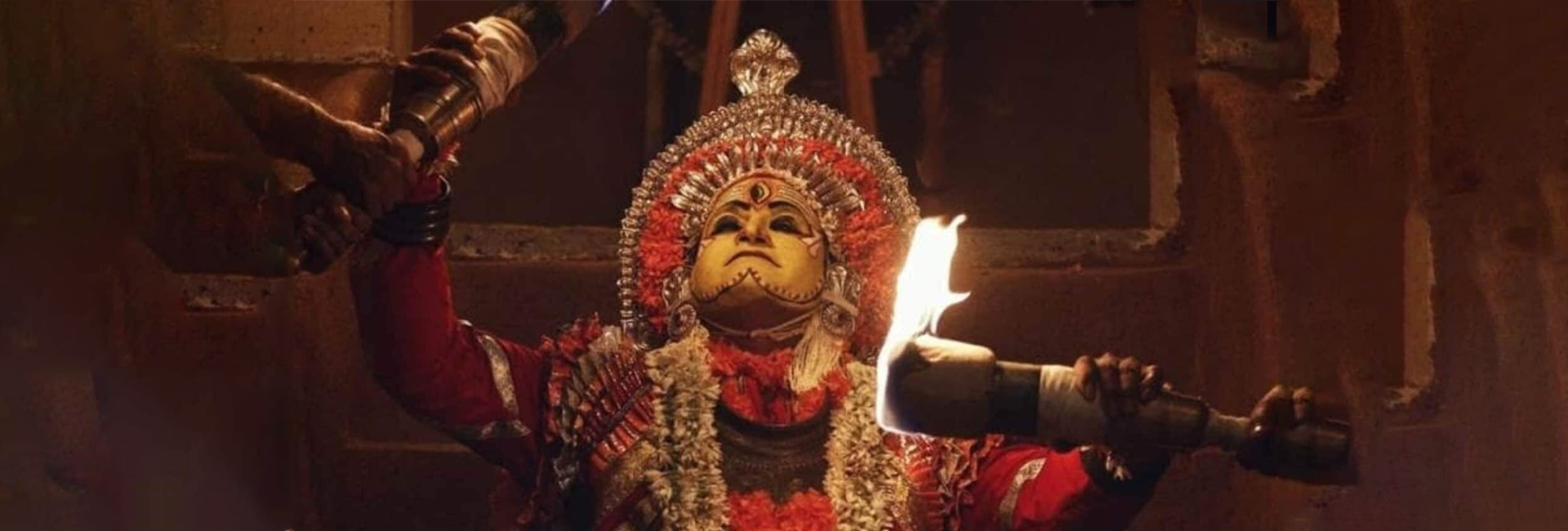(December 8, 2024) What happens when a childhood tale from Karnataka finds its way to Hollywood’s biggest stage? For filmmaker Chidananda S Naik, it turns into an Oscar selection. His short film, Sunflowers Were the First Ones to Know, has not only created a stir at the international film festivals but has also been qualified for the Oscars 2025 in the Live Action Short Film category. The 16-minute Kannada masterpiece, rooted in folklore, is proof of India’s brilliant storytelling tradition. “It feels really happy and humbling to have been qualified for the Oscars 2025,” Chidananda tells Global Indian. “The feeling has truly sunk in, and it has created a strong connection with my audience. It’s a rewarding journey that keeps me motivated to create even more meaningful stories.”
The Oscar selection is yet another milestone for the Kannada short film which made headlines a few months ago for winning the prestigious La Cinef Award at Cannes Film Festival. Inspired from Ajjiya Jamba, a Kannada folklore, it tells the story of a village thrown into chaos when an elderly woman steals a rooster, causing darkness to engulf the land. In just 16 minutes, Chidananda tells a story where night becomes a character, exploring themes of superstition, community, and human emotions.
View this post on Instagram
The film’s journey to the Oscars add to the growing list of Indian films gaining international recognition. From RRR‘s historic win for Best Original Song with Naatu Naatu to The Elephant Whisperers winning Best Documentary Short at the 2023 Oscars, Indian cinema continues to shine globally. And Chidananda’s film builds on this legacy putting the spotlight on the power of regional stories.
The 28-year-old filmmaker is “super proud” to represent a Kannada film at the Oscars. “We’ve been shown time and again by our seniors that good stories have no boundaries. India is a country of many languages, and our strength lies in our diversity,” he says, adding, “This recognition is a testament to that, as it reflects the power of stories that transcend language, culture, and geography. It’s a reminder that storytelling is universal, and every region has its own unique narrative to offer the world.”
Competing in the Oscars Live Action Short category is a happy and privileged moment for Chidananda. “It’s an incredible feeling to be among the best films from around the world. Our film is currently streaming in the Academy screening room, accessible to Academy members for voting purposes. The preliminary round of voting begins on Monday, December 9, 2024, and ends on Friday, December 13, 2024. It’s a huge step for our work.”

India’s history with Oscars
India’s tryst with the Oscars began in 1958 when Mother India became the first Indian film to earn a nomination in the Best International Feature Film category (then called Best Foreign Language Film). Though it narrowly missed the award, it paved the way for Indian films on the world stage. Years later, Bhanu Athiya brought India its very first Oscar in 1983 for Best Costume Design for her work in Gandhi. Since then, India has had several memorable moments at the Academy Awards, from Lagaan’s 2001 nomination to Slumdog Millionaire sweeping eight Oscars in 2009, including two wins for AR Rahman. More recently, Naatu Naatu from RRR and The Elephant Whisperers continued this legacy by winning Oscars in 2023, reflecting India’s growing presence in global cinema.
Winning big at Cannes
In May 2024, the French Riviera witnessed history in the making as for the first time a film made by a first-year student at FTII won the La Cinef award at the Cannes Film Festival. Competing with films from top film schools worldwide, Chidananda’s victory was a historic moment for Kannada cinema and Indian filmmaking.

Chidananda Naik at Cannes Film Festival
Calling it a huge honour to represent India, the Mysuru-based filmmaker said that awards like La Cinef support the next generation of international filmmakers. “Our success at Cannes has opened new doors and inspired us to continue creating films that resonate globally.” The 16-minute film stood out for its unique narrative and evocative storytelling. The big win at Cannes not only spotlighted his talent but also marked a growing appreciation for regional stories told with authenticity and heart.
ALSO READ: Chidananda Naik on winning La Cinef Award at Cannes 2024: This is just the beginning
Bringing folklore to the world
When Chidananda began filming Sunflowers Were The First Ones to Know as coursework at FTII, little did he know that the Kannada folklore would resonate with a global audience. In a short span, the film has gained international recognition, cementing Chidananda’s belief in the universal power of local stories. However, making the film was as challenging as the tale it tells. Shot in four days with a tight-knit crew composed of his batchmates, every scene required meticulous planning and execution. “It was extremely difficult to shoot with all the limited resources and rules. We were super exhausted but really satisfied with the shots we achieved,” Chidananda recalls. Despite these challenges, the team brought their vision to life, blending minimal resources with maximum creativity to produce a film that is both hauntingly beautiful and culturally profound.
From Healing Bodies to Crafting Stories
The filmmaker, who is gaining popularity globally, once wanted to be a doctor. Born in Shivamogga in Karnataka and raised in a family steeped in academia, he initially pursued medicine, earning an MBBS degree from Mysore Medical College and Research Institute. But somewhere along the way, his fascination with the human condition evolved from healing bodies to exploring emotions through art. “In medical school, we learned about anatomy and the physical aspects of being human, but I was constantly drawn to understanding emotions and feelings,” he recalls.
The shift from doctor to filmmaker wasn’t an escape but a deliberate choice to find meaning and joy in self-expression. Armed with a curiosity about life and a passion for storytelling, Chidananda joined FTII, Pune, a decision that changed the course of his life.
Dreaming on
Today, as his work gains international recognition, Chidananda’s journey shows the importance of following one’s passion, even when it means taking an uncertain path.

For Chidananda Naik, the journey from a folklore-inspired short film to Cannes and now the Oscars is a dream come true. “I have always believed in the positive energies of the universe. When you stay open to possibilities and remain committed to your passions, things tend to align in ways you might not expect. It’s amazing how the right intentions and resilience can bring your dreams closer to reality,” adds the young filmmaker.




